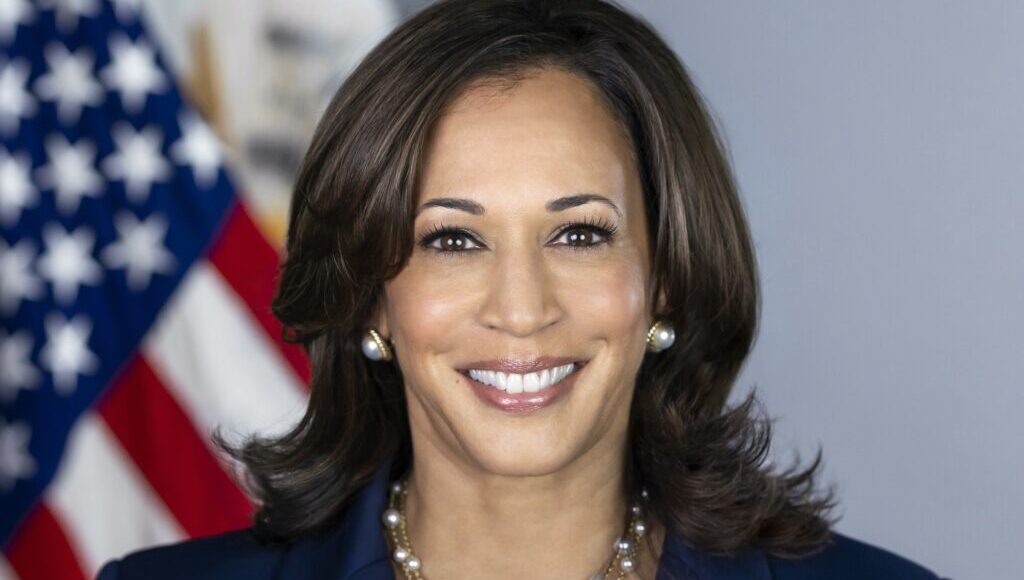It all started with a Zoom call featuring a group of Black women who quickly hit their million-dollar fundraising target in just about three hours.
Since then, similar Zoom meetings have taken place, including one with approximately 123,000 “white dudes” who gathered virtually to raise $3 million (£2.3 million) in just one hour on Monday evening.
The funds are for Kamala Harris’s US presidential campaign, which is now less than a week old. Her campaign is leveraging grassroots energy that wasn’t present for President Joe Biden, using modern video conferencing to connect with motivated voters and raise funds online.
In the past week—around 100 days before Election Day—the campaign has raised $200 million (£155 million) and recruited over 170,000 new volunteers.
Unlike the major donors who recently pressured Biden to end his candidacy, it is now hundreds of thousands of ordinary Democrats generating “Kamalamentum.”
Initial Zoom call attendance was in the tens of thousands—a significant achievement given that Zoom typically limits meetings to 1,000 participants. The largest call to date has reached 160,000 people. Zoom did not respond to requests for comment.
Republicans have criticized some of these identity-based virtual gatherings as “racist” and “desperate” attempts to pander to liberal supporters.
However, despite some reservations about the overt use of identity in campaigning, the impact of these virtual events is being taken seriously.
Republican consultant and pollster Whit Ayres commented that the Zoom sessions serve as “an informal way where [Harris] can deliver scripted messages and energize people,” signaling significant enthusiasm for her candidacy.
He also noted that Republicans would be making a mistake by dismissing the identity-based Zoom sessions.
“It backfires when you start attacking people because of their identity. Because everyone else who shares their identity feels like you’re attacking them.”
Meanwhile, Donald Trump and his party have suggested that Democrats are more energized by President Biden’s unexpected exit from the race rather than by Kamala Harris herself.
On July 21, just hours after Biden announced he was dropping out and endorsing Harris, a group of Black female political organizers held a Zoom call.
The four-hour event drew 44,000 participants and raised $1.6 million for Harris, surpassing their original goal of $1 million within 100 days.
“I felt like when Obama got the nomination all over again. I actually felt more excited, to be honest,” Black Voters Matter co-founder LaTosha Brown, who joined the call, told The 19th News.
“My first response was, ‘OK, he’s out; now we’ve got to fight for this sister’.”
Ms. Harris, 59, would become the first Black woman—and the first South Asian woman—to secure a major American party’s presidential nomination.
Following this, gatherings of South Asian women have celebrated their “auntie,” while Latinas have honored her as “hermana.” The official nomination is anticipated to be announced at the Democratic National Convention in August.
On July 22, the day after Biden’s announcement, over 53,000 Black men gathered on Zoom, raising $1.3 million in about six hours.
Another massive video conference, “White Women: Answer the Call,” took place on Thursday. It experienced frequent crashes as over 160,000 participants joined, making it the largest Zoom call ever, according to organizers.
Shannon Watts, a prominent gun control advocate and lead organizer of the event, reported on Twitter/X that the group had raised $11 million for Harris.
“White women are the largest voting bloc in this country. We make up 40% of the voters and so we are divided by religious, marital and education lines,” Ms Watts told CBS News, the BBC’s US partner.
“And even a tiny shift in our voting patterns can swing an entire election, and so that was a conversation that we needed to have on this call.”
On Monday evening, “White Dudes for Harris” saw over 90,000 people register, to hear remarks from celebrities and politicians.
Supporters were explicitly instructed, sometimes in strong language, not to let the Trump campaign represent “all white men.”
Mr. Ayres suggested that the Trump campaign should be concerned if Ms. Harris manages to sustain her momentum and avoid any off-the-cuff errors during public appearances.
The Zoom sessions seem to be an effective means for her to connect with voters in a casual setting while staying on message. This contrasts sharply with her 2019 campaign, when she was often criticized for being “incoherent” and speaking in “gibberish” when pressed on her positions on key issues, Ayres noted.
“If she runs her campaign like she did the last time she ran for president, her campaign will collapse and Donald Trump will waltz into the White House,” Mr Ayres said.
“On the other hand, if she has learned how to be a competent national candidate under enormous pressure, she’s gonna give him a real run for his money.”
The current momentum for Harris is a significant shift from the beginning of July, when Democratic donors and fundraisers, including Abigail Disney and George Clooney, publicly criticized President Biden’s re-election bid.
On Saturday, in the extensive Florida retirement community of The Villages, residents in 500 golf carts rallied in support of Harris—a notable event in a predominantly white, conservative stronghold.
Polls from the past week show Harris in a tight race with Trump, either erasing his slim lead or being within the margin of error in most surveys.


